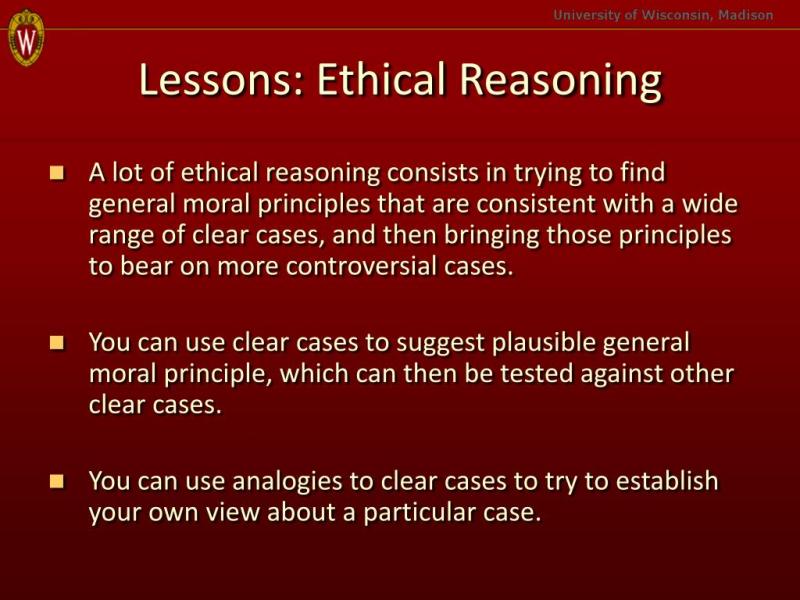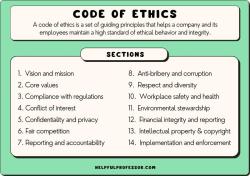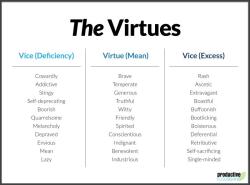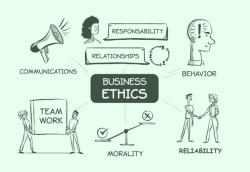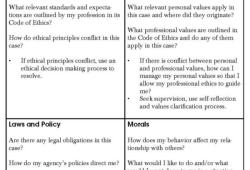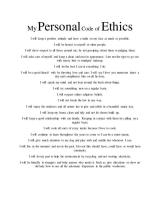Do ethical people try to observe the form and spirit of ethics?
Ethical individuals generally strive to observe both the form and spirit of ethical principles. The form of ethics refers to adhering to explicit rules, guidelines, or codes of conduct, while the spirit of ethics involves embodying the underlying values and principles that guide ethical behavior. Ideally, ethical observance requires a balance between following prescribed rules and embodying the deeper moral principles that those rules are intended to uphold.
Here's a breakdown of the importance of both form and spirit in ethical observance:
Form of Ethics:
- Compliance with Rules: Adhering to ethical rules and guidelines is crucial. These rules often serve as a foundation for ethical behavior and are designed to prevent harm, ensure fairness, and promote positive outcomes.
- Legal and Institutional Frameworks: Ethical individuals respect and adhere to the legal and institutional frameworks that define acceptable behavior in various contexts, such as professional codes of conduct, laws, and regulations.
Spirit of Ethics:
- Internalizing Values: Ethical individuals internalize ethical values and principles, embracing a moral compass that guides their actions beyond mere compliance with rules.
- Personal Integrity: The spirit of ethics involves maintaining personal integrity, honesty, and accountability, even in situations where no explicit rules exist. It goes beyond what is required by rules and involves doing what is morally right.
Balancing Form and Spirit:
- Holistic Ethical Behavior: The most effective ethical observance involves a holistic approach that combines both form and spirit. This means not only following rules but also understanding the ethical reasoning behind those rules and applying them with a genuine commitment to ethical values.
- Adaptability: Ethical individuals recognize that ethical dilemmas may not always have clear-cut rules, and situations may require adaptability and moral judgment. Balancing form and spirit allows individuals to navigate complex ethical situations.
Striving to observe both the form and spirit of ethics contributes to the development of a strong ethical character. It promotes a sense of responsibility, fosters trust in relationships, and helps create a positive ethical culture in various environments, whether in the workplace, community, or personal life.
It's important to note that ethical observance is a dynamic and ongoing process. Ethical individuals engage in continuous self-reflection, learning, and improvement, recognizing that ethical challenges and dilemmas evolve over time. The integration of both the form and spirit of ethics supports a comprehensive and sustainable approach to ethical behavior.
Form and Spirit of Ethics: A Dynamic Duo for Ethical Decision-Making
1. Adhering to Form and Spirit:
Individuals committed to ethics strive to follow both the form and spirit of ethical principles. While these aspects may seem intertwined, they offer different but complementary angles on ethical behavior:
- Form: Refers to the specific rules, codes, and regulations that define acceptable and unacceptable behavior within a particular context. Following the form ensures compliance with established standards and avoids obvious violations.
- Spirit: Goes beyond the literal interpretation of rules and focuses on the underlying principles and values they represent. It emphasizes the intent and purpose behind the rules and encourages individuals to act in a way that embodies those values consistently.
2. Impact on Ethical Decision-Making:
Adherence to both form and spirit plays a critical role in ethical decision-making by:
- Promoting Consistency and Fairness: Following the form ensures consistency and fairness in applying ethical standards across individuals and situations. It prevents favoritism and arbitrary decision-making.
- Encouraging Moral Reasoning: Engaging with the spirit of ethics requires deeper reflection and understanding of the underlying values and principles. This fosters a more nuanced and reasoned approach to ethical dilemmas.
- Preventing Loophole Exploitation: Focusing solely on the form can lead individuals to exploit loopholes and manipulate rules to their advantage, even if the spirit of the rules is violated. By considering both aspects, ethical decision-making becomes less susceptible to manipulation.
- Promoting Authentic Moral Growth: Aligning with the spirit encourages individuals to internalize ethical values and strive for genuine moral growth. It goes beyond mere compliance and motivates individuals to act with integrity and compassion.
3. Ethical Behavior without Both Form and Spirit:
Ethical behavior can exist without perfect adherence to both form and spirit in certain situations:
- Exceptional Circumstances: In rare cases, strict adherence to form might lead to unethical outcomes. For example, following rules rigidly could cause harm or injustice in specific circumstances. In such situations, considering the spirit of ethics might require a flexible interpretation of the form to achieve a more just outcome.
- Limited Awareness: Individuals may not always possess complete knowledge of relevant ethical regulations or principles. This can lead to unintentional violations of the form. However, genuine efforts to improve understanding and align with the spirit of ethics can still contribute to ethical behavior.
However, it's important to note that consistently disregarding the form or spirit of ethics can undermine the foundation of ethical behavior:
- Erosion of Trust: Repeatedly violating rules or acting in ways that contradict the spirit of ethics can erode trust and undermine the credibility of individuals or institutions.
- Normalization of Unethical Conduct: When individuals consistently choose convenience over the spirit of ethics, it can normalize unethical behavior and lead to a decline in overall ethical standards within a community.
Therefore, while ethical behavior may exist in some situations without perfect adherence to both form and spirit, a consistent commitment to both aspects is essential for long-term ethical growth, building trust, and maintaining strong ethical standards within society.
